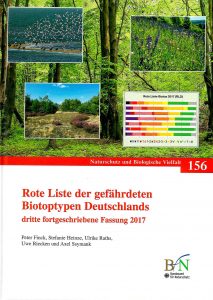The second edition of the DEVOTES book “Bridging the Gap Between Policy and Science in Assessing the Health Status of Marine Ecosystems, 2nd Edition” has been compiled and is now available online.
The book contains 37 chapters in total, with the most important findings from the DEVOTES project and you can download it for free.
You may find the E-book on the Frontiers website through the following link:
http://www.frontiersin.org/books/Bridging_the_Gap_Between_Policy_and_Science_in_Assessing_the_Health_Status_of_Marine_Ecosystems_2nd/1151
It is also available for download on the Research Topic homepage, found here:
http://journal.frontiersin.org/researchtopic/4637/bridging-the-gap-between-policy-and-science-in-assessing-the-health-status-of-marine-ecosystems
Book content:
Marine management requires approaches which bring together the best research from the natural and social sciences. It requires stakeholders to be well-informed by science and to work across administrative and geographical boundaries, a feature especially important in the inter-connected marine environment.
Marine management must ensure that the natural structure and functioning of ecosystems is maintained to provide ecosystem services. Once those marine ecosystem services have been created, they deliver societal goods as long as society inputs its skills, time, money and energy to gather those benefits.
However, if societal goods and benefits are to be limitless, society requires appropriate administrative, legal and management mechanisms to ensure that the use of such benefits do not impact on environmental quality, but instead support its sustainable use.
Bibliographic details:
BBridging the Gap Between Policy and Science in Assessing the Health Status of Marine Ecosystems, 2nd Edition
Edited by: Angel Borja, Michael Elliott, María C. Uyarra, Jacob Carstensen, Marianna Mea
Publisher: Frontiers Media SA
ISBN: 9782889451265
Product Name: Frontiers Theme Book

